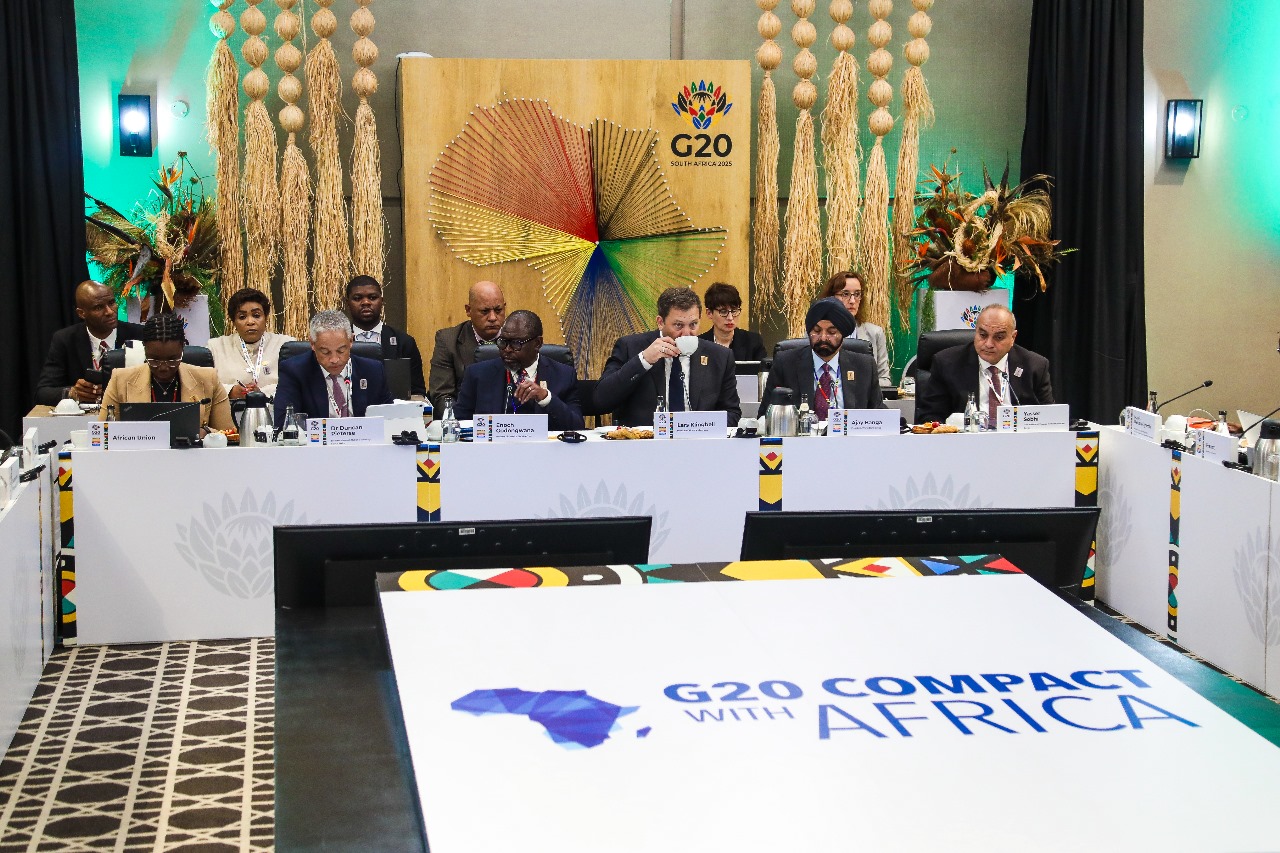Germany Pledges €10M to G20 Compact with Africa, Urges Broader Global Support
“This is not only a strategic investment — it is one that can boost growth, create business opportunities, and reduce pressure on public budgets in key member states,” said Klingbeil.

- Country:
- South Africa
Germany has pledged an initial €10 million contribution to the G20 Compact with Africa (CwA) initiative, a bold reaffirmation of its commitment to unlocking private investment, fostering inclusive growth, and deepening equitable global partnerships. This announcement was made by German Vice-Chancellor Lars Klingbeil during the G20 Finance Track Meeting held in Durban, South Africa on Thursday.
“This is not only a strategic investment — it is one that can boost growth, create business opportunities, and reduce pressure on public budgets in key member states,” said Klingbeil.
His remarks underscored both Germany’s strategic intent and the transformative potential of the Compact, especially at a time when Africa stands at a critical crossroads in its development trajectory.
Germany and South Africa Co-Chair G20 Compact with Africa
The G20 Compact with Africa, launched under Germany’s G20 Presidency in 2017, aims to increase private investment in African economies by improving the macro-economic, business, and financial environments in participating countries. The initiative is governed under the G20 Africa Advisory Group (AAG), co-chaired by Germany and South Africa, and supported by key institutions including the African Development Bank (AfDB), International Monetary Fund (IMF), and World Bank.
Germany’s new €10 million contribution will be directed to the World Bank’s CwA Trust Fund, with Klingbeil calling on other G20 members to follow suit, thereby ensuring the Compact’s long-term viability and expanded reach.
“Only through our joint efforts can we truly unlock the potential of the Compact with Africa and make a lasting impact for the benefit of our African partners and the global community,” he said.
Compact with Africa: A Catalyst for Private Sector Growth
Since its inception, the CwA has grown into a dynamic platform for economic reform and peer-to-peer learning, with tangible impacts across multiple African countries.
South African Finance Minister Enoch Godongwana, speaking alongside Klingbeil, reported that the initiative has:
-
Mobilised over $191 million in private capital
-
Enabled development of bankable infrastructure and energy projects
-
Improved access to critical services for over 13.5 million people
-
Supported a peer-learning network via institutions such as the African Centre for Economic Transformation (ACET)
-
Facilitated technical assistance and reform monitoring
“As we look ahead, the success of the Compact with Africa will depend on our collective commitment. We must ensure that it remains country-owned, reform-driven, and result-oriented,” Godongwana stressed.
New Thinking in North-South Development Partnerships
Klingbeil took the opportunity to present Germany’s evolving approach to global cooperation, stating that developmental partnerships must shift away from top-down models. He revealed that the German government would soon establish a new North-South Commission, envisioned as an inclusive international forum comprising experts from politics, business, academia, and civil society.
“We don’t need a platform where the North tells the South what to do,” Klingbeil asserted. “We must come together on equal footing to find common answers to global challenges.”
The Commission will focus on identifying innovative, efficient, and inclusive solutions to today’s pressing challenges — from climate change and migration to technology transfer, private capital mobilisation, and sustainable infrastructure.
A Compact Model Under Pressure — But Full of Promise
Klingbeil acknowledged that the Compact’s full potential is still being realised, citing external disruptions such as the COVID-19 pandemic, global inflation, and geopolitical uncertainty as factors that have slowed progress. Yet, despite these obstacles, Compact countries have demonstrated stronger foreign direct investment flows, outperforming non-members in key metrics.
“This highlights the necessity for continued political and financial commitment,” Klingbeil said. “We are convinced that this is a worthwhile investment.”
With Africa’s infrastructure financing gap exceeding $100 billion per year, initiatives like the CwA are crucial for attracting long-term private investment, ensuring sustainable financing models, and improving the investment climate in African economies.
South Africa’s G20 Presidency: Championing Solidarity and Reform
South Africa, which assumed the G20 Presidency on 1 December 2024, has chosen the theme “Solidarity, Equality, and Sustainability” for its term — a reflection of its priorities to promote inclusive global governance, amplify voices from the Global South, and champion equitable access to development opportunities.
In line with this, Minister Godongwana called for:
-
Increased involvement of the private sector in development finance
-
Greater alignment of global financial institutions with African priorities
-
Enhanced support for reforms that create predictable and transparent policy environments
“Africa’s development trajectory is at a crossroads,” he said. “While the continent is rich in opportunity, it continues to face challenges ranging from infrastructure deficits and climate vulnerability to limited access to long-term private capital.”
Charting the Way Forward
The Compact with Africa offers a reform-driven, results-oriented framework that enables African countries to take ownership of their development agendas, while leveraging the strengths of international partnerships. With renewed funding, stronger political backing, and a growing emphasis on shared prosperity, the initiative is poised to play a more prominent role in Africa’s next chapter.
As the G20 continues to convene under South Africa’s leadership, the challenge remains: to move from promises to implementation — and to ensure that development partnerships become mutually beneficial, balanced, and truly transformative.
- READ MORE ON:
- Compact with Africa
- Lars Klingbeil
- Enoch Godongwana
- G20 Finance Track
- Germany Africa investment
- World Bank Trust Fund
- private capital mobilisation
- inclusive growth
- South Africa G20 Presidency
- infrastructure finance Africa
- North-South partnerships
- African economic reform
- G20 Durban meeting
ALSO READ
Bangladesh Charts Path to Empower SMEs as Drivers of Inclusive Growth
Policies Must Empower Women, Youth, and Disabled for Inclusive Growth: Chikunga
Maggie Sotyu Engages N Cape Communities on G20 Agenda for Inclusive Growth
Gadkari Advocates Inclusive Growth Amid Economic Reforms
NITI Aayog Unveils NER District SDG Index 2023-24 to Accelerate Inclusive Growth










